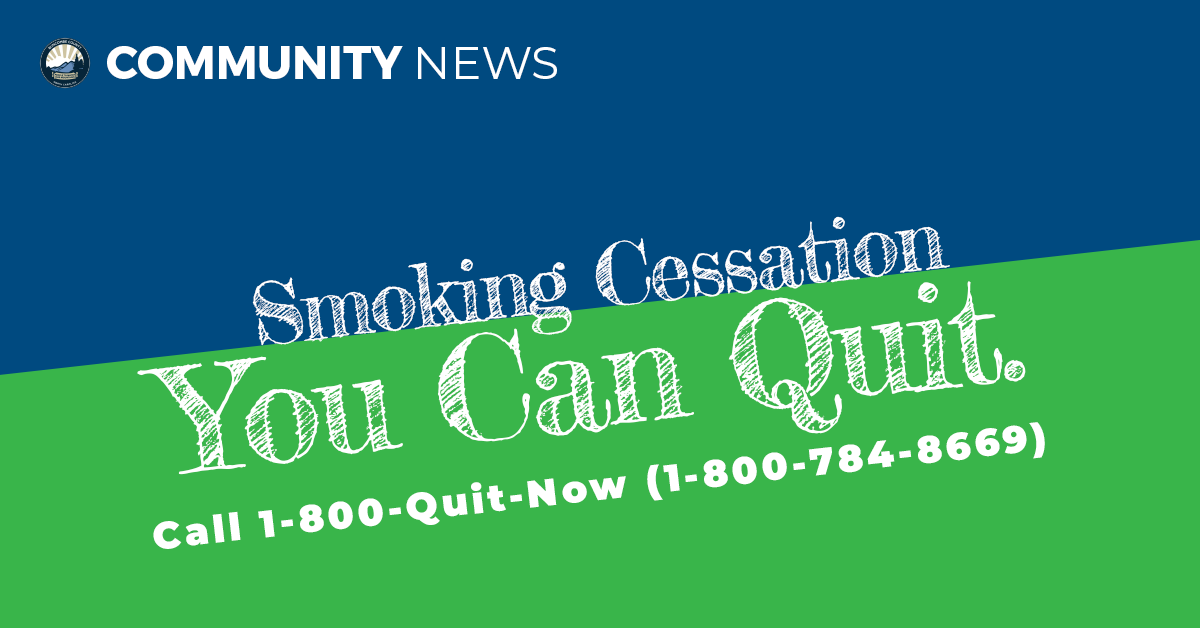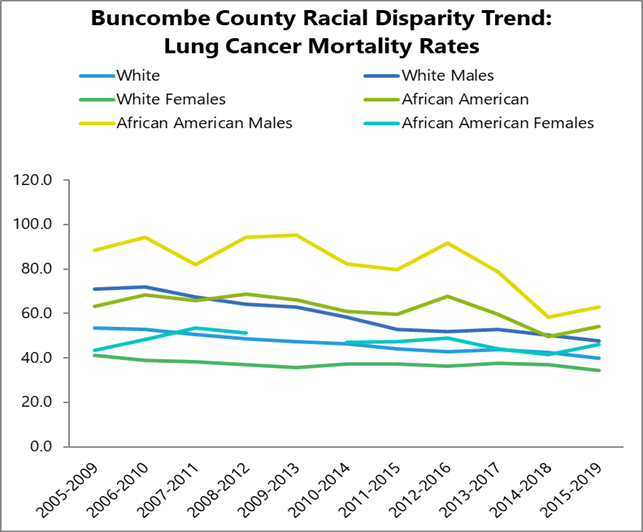This news item expired on Tuesday, December 31, 2024 so the information below could be outdated or incorrect.

As of 2022 in the United States there were close to 40 million adults who smoked tobacco and over 3 million middle and high school students who reported using at least one tobacco product (CDC, 2022). In North Carolina between 2019-2020, the rate of adult and youth tobacco use was even higher than the national average, and in 2022, the estimated cost of providing medical and healthcare services related to diseases caused by tobacco use was over $4 billion in North Carolina alone.
Why Tobacco Use is a Public Health Concern
Tobacco use has been linked with numerous chronic diseases (including multiple types of cancer, chronic obstructive pulmonary disease/COPD, heart disease, heart attack, stroke, high blood pressure, type 2 diabetes, and asthma). Lung cancer deaths from tobacco use continue to impact some groups more than others, particularly Black/African Americans, and all deaths from tobacco use are considered preventable.
More specifically, in Buncombe County, NC there are clear and persistent disparities around mortality rates for lung cancer (see chart below), heart disease, and diabetes for Black/African Americans when compared with rates for Whites.

How Did We Get Here: Big Tobacco and Dishonest Marketing
Tobacco manufacturers have historically preyed upon U.S. citizens through deceptive and manipulative marketing schemes that minimize the health impacts of smoking, entice and promote youth experimentation with smoking, and encourage the use/consumption of menthol smoking products. As public health efforts to combat preventable deaths and disease from tobacco use have increased over the last three decades, tobacco manufacturers have attempted to remake their image by marketing tobacco products that are presented as a ‘safer alternative’ (e-cigarettes and vaping) and including flavors with their products to entice younger audiences. Big tobacco marketing campaigns have also historically focused on reinforcing cultural values such as independence and freedom as a way to message that using tobacco is a statement of unique individualism. Along with these strategic messages, tobacco campaigns have a long history of developing advertising campaigns to target certain groups of people and identities as another means to secure profits: women, BIPOC, LGBTQIA+, and youth. The combined result of deceptive and targeted tobacco marketing has created disparities in health and life outcomes for many groups of people.
What We Know About Quitting Tobacco
Within 20 minutes of quitting, blood pressure and heart rates will begin to drop. By week two without tobacco, blood circulation and lung functioning begin to increase and will continue to improve over the next few months. At year one the risk of heart attack decreases, and by year five the risk of developing certain types of cancers is cut in half.
Ongoing exposure to the chemicals in tobacco products, especially nicotine, creates addiction. Much like quitting any other drug, there will be cravings and withdrawal symptoms that appear after stopping tobacco use, and these symptoms can linger for a few weeks. Research has shown that using a combination of tobacco cessation resources when attempting to quit can increase long-term success rates.
Popular Cessation Resources
- Prescription medication
- Nicotine patches, lozenges, or gum
- Counseling or hypnosis
- Support groups and/or individual counseling
Tips for Quitting
- Set a date to quit
- Remove all smoking products from the car, house, office, and anywhere else
- Make a personal commitment – to yourself – not to smoke
- Avoid alcohol while quitting because alcohol lowers one’s self-discipline
- Remember why you are choosing to quit when the going gets tough
- Expect some tough times, and be prepared to overcome them
- Try to stay away from smokers and secondhand smoke – at least in the beginning
Where to Go to Learn More About Quitting